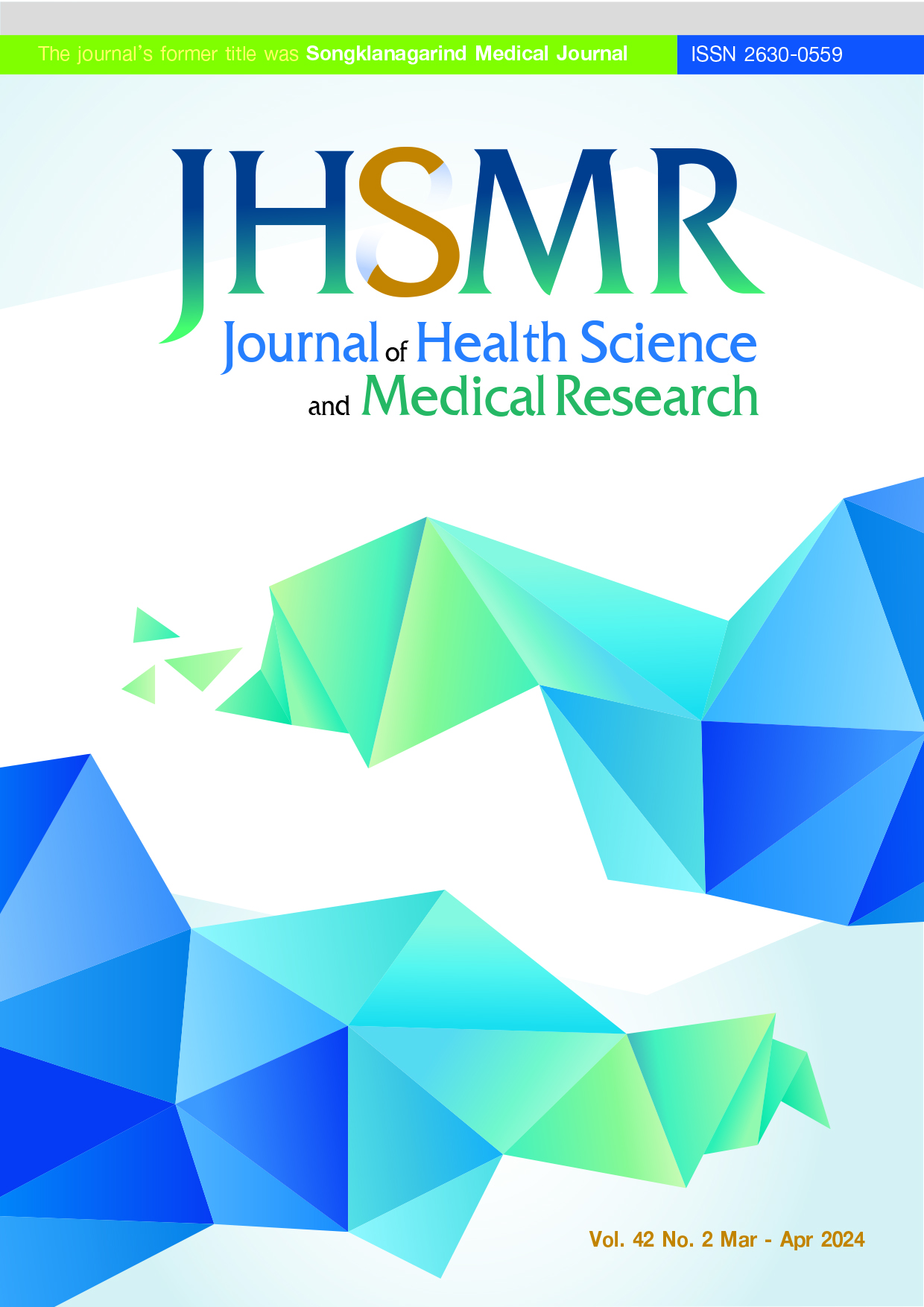Interventional Pain Management Using Dextrose Prolotherapy in Treating a Partial Supraspinatus Tear: A Case Report
DOI:
https://doi.org/10.31584/jhsmr.20231014Keywords:
10% dextrose, interventional pain management, partial supraspinatus tear, prolotherapyAbstract
Shoulder pain is a medical condition that may affect the well-being and compromise the quality of life of an individual, especially in the elderly. A supraspinatus tear is the most common cause of shoulder pain. Several treatments are available for this problem, such as surgical and conservative treatment. The surgical approach is found to be more efficacious but has a high rate of recurrence. Prolotherapy is one of the novel pain treatment modalities that could provide significant pain relief in musculoskeletal diseases. In this case report, we report a 53-year-old woman, who came to the outpatient clinic complaining of pain in her right shoulder for three months. The pain had been getting worse in the previous seven days, felt continuously throughout the day, and exacerbated when she raised her arm. The physical examination revealed a limited range of motion of active abduction and flexion with a positive drop arm test of the right shoulder. An ultrasound revealed a tear-drop appearance. The patient was treated with interventional pain management using dextrose prolotherapy. After undergoing prolotherapy treatment for three sessions over two months, the patient was declared completely healed from the supraspinatus tear. In conclusion, prolotherapy coupled with an ultrasound-guided
procedure appears to be beneficial in alleviating pain and completely healing supraspinatus tears.
References
Minagawa H, Yamamoto N, Abe H, Fukuda M, Seki N, Kikuchi K, et al. Prevalence of symptomatic and asymptomatic rotator cuff tears in the general population: From mass-screening in one village. J Orthop 2013;10:8-12.
Mall N, Lee A, Chahal J, Sherman S, Romeo A, Verma N, et al. An evidenced-based examination of the epidemiology and outcomes of traumatic rotator cuff tears. Arthrosc: J Arthrosc Relat Surg 2013;29:366-76.
Schmucker C, Braun C, Meerpohl J, Titscher V, Nussbaumer-Streit B, Gartlehner G. Surgical and non-surgical interventions in complete rotator cuff tears-a systematic review and metaanalysis. Dtsch Arztebl Int 2020;117:633–40.
Routledge JC, Saber AY, Pennington N, Gupta N. Re-Tear rates following rotator cuff repair surgery. Cureus 2023;15.
Hauser RA, Lackner JB, Steilen-Matias D, Harris DK. A systematic review of dextrose prolotherapy for chronic musculoskeletal pain. Clin Med Insights: Arthritis Musculoskelet Disord 2016;9:139–59.
Rabago D, Slattengren A, Zgierska A. Prolotherapy in primary care practice. Prim Care 2010;37:65–80.
Zhao J, Luo M, Liang G, Wu M, Pan J, Zeng LF, et al. Risk factors for supraspinatus tears: a meta-analysis of observational studies. Orthop J Sports Med 2021;9.
Batur EB, Sarıkaya PZB, Kaygısız ME, Gezer IA, Levendoglu F. Diagnostic dilemma: Which clinical tests are most accurate for diagnosing supraspinatus muscle tears and tendinosis when compared to magnetic resonance imaging? Cureus 2022;14.
Ramírez JP, Bonati-Richardson F, García MP, Hidalgo C, Stoore C, Liendo R, et al. Intra-articular treatment with corticosteroids increases apoptosis in human rotator cuff tears. Connect Tissue Res 2019;60:283–90.
Hung CY, Hsiao MY, Chang KV, Han DS, Wang TG. Comparative effectiveness of dextrose prolotherapy versus control injections and exercise in the management of osteoarthritis pain: a systematic review and meta-analysis. J Pain Res 2016;9:847–57.
Ng AWH, Hung EHY, Griffith JF, Tong CSL, Cho CCM. Comparison of ultrasound versus fluorcoscopic guided rotator cuff interval approach for MR arthrography. Clin Imaging 2013;37:548–53.
Eroglu A, Yargic MP. Effectiveness of ultrasound-guided corticosteroid injections, prolotherapy, and exercise therapy on partial-thickness supraspinatus tears. J Sport Rehabil 2022;31:869-75.
Akpancar S, Örsçelik A, Seven MM, Koca K. The effectiveness of prolotherapy on failed rotator cuff repair surgery. Turk J Phys Med Rehabil 2019;65:394.
Seven MM, Ersen O, Akpancar S, Ozkan H, Turkkan S, Yıldız Y, et al. Effectiveness of prolotherapy in the treatment of chronic rotator cuff lesions. Orthop Traumatol: Surg Res 2017;103:427–33.
Lin CL, Huang CC, Huang SW. Effects of hypertonic dextrose injection in chronic supraspinatus tendinopathy of the shoulder: A randomized placebo-controlled trial. Eur J Phys Rehabil Med 2019;55:480–7.
Downloads
Published
How to Cite
Issue
Section
License

This work is licensed under a Creative Commons Attribution-NonCommercial-NoDerivatives 4.0 International License.
























